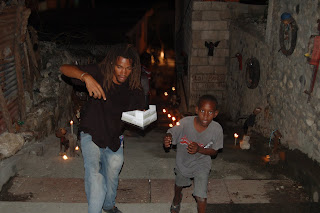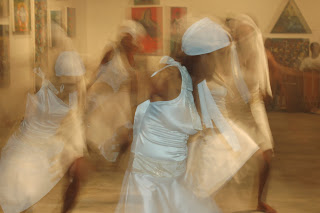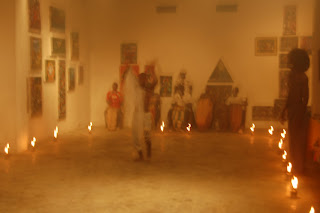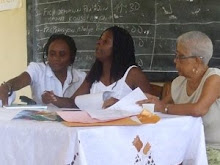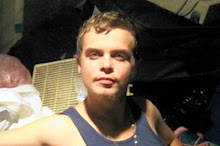
Hello friends and supporters,
We are writing you to ask for your financial support in obtaining an office space for MESS, a student public health movement birthed out of the aftermath of the 2010 earthquake. As some of you may know, Jacmel Working Group collaborated with MESS during our two month stay earlier this year.
MESS's work in Jakmel has proved to be an integral part of the Haitian led relief effort. However, MESS could be far more effective with an office space. Throughout the year they have held their meetings at a picnic table or anywhere they could find space. With an office, they would be able to set up a computer workstation, host meetings and store supplies for their public health activities. We are hoping to raise $3000 to secure an office plus utilities. Please donate to MESS through our paypal.
MESS was formed after the collapse of the entire university system in Port au Prince. Upon returning to their hometown of Jakmel, the displaced students formed MESS to respond to public health issues of earthquake survivors. These include primary health care mobile clinics, public health education around hygiene and sanitation and STI's, violence prevention and public safety, and mental health support work.
During the early part of our trip, we met MESS and through a series of meetings figured out how we could best support them in a model of solidarity not charity. After our meetings with MESS, we showed our support by consulting with their oversight and mental health committees, volunteering at their mobile health clinic sites and mental health support groups, provided medical donations and committed to raising money for their continued efforts.
On a recent trip to Haiti, Ivy met with MESS and was updated on their current work and their current needs. They have continued to plan and implement mobile and mental health clinics, public health education, and have expanded their work to domestic violence prevention focused on men speaking to men. They now also have a weekly health-focused radio show every Sunday at 6 pm on Radio Express, Jakmel's first and oldest community radio station.
You can donate finances via our paypal for MESS's office space.
Please forward this far and wide so that we can reach our goal of $3000 for MESS.
Thank you all for your support in the Haitian-led relief effort. Please check this blog for periodic updates on MESS and other great projects.
Ivy Jeanne McClelland
Jerry Gildea
Jacmel Working Group










